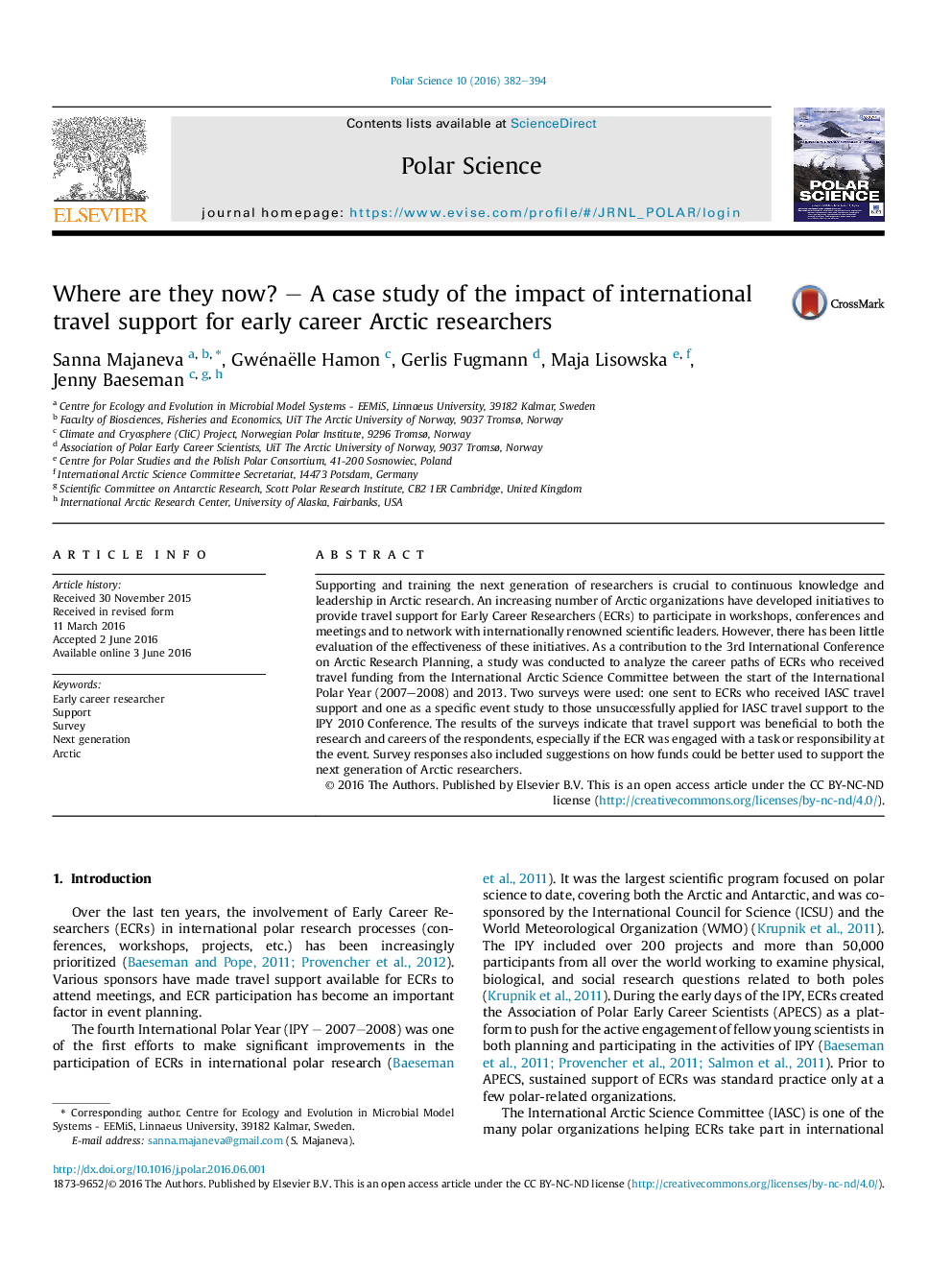| Article ID | Journal | Published Year | Pages | File Type |
|---|---|---|---|---|
| 5780597 | Polar Science | 2016 | 13 Pages |
Supporting and training the next generation of researchers is crucial to continuous knowledge and leadership in Arctic research. An increasing number of Arctic organizations have developed initiatives to provide travel support for Early Career Researchers (ECRs) to participate in workshops, conferences and meetings and to network with internationally renowned scientific leaders. However, there has been little evaluation of the effectiveness of these initiatives. As a contribution to the 3rd International Conference on Arctic Research Planning, a study was conducted to analyze the career paths of ECRs who received travel funding from the International Arctic Science Committee between the start of the International Polar Year (2007-2008) and 2013. Two surveys were used: one sent to ECRs who received IASC travel support and one as a specific event study to those unsuccessfully applied for IASC travel support to the IPY 2010 Conference. The results of the surveys indicate that travel support was beneficial to both the research and careers of the respondents, especially if the ECR was engaged with a task or responsibility at the event. Survey responses also included suggestions on how funds could be better used to support the next generation of Arctic researchers.
